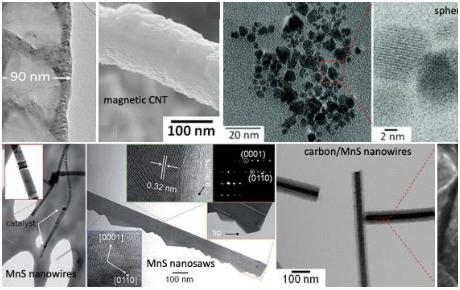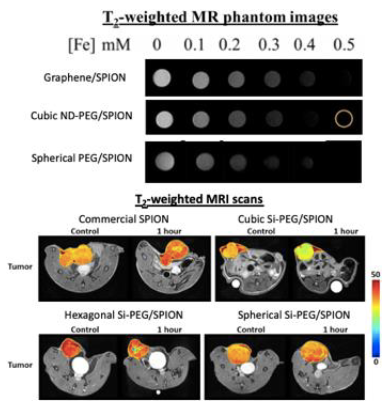Research
Research Projects
“Magnetic Formulations and Bionanotechnology Laboratory”
Juan Beltran-Huarac (Principal Investigator)
Assistant Professor, Physics Department, East Carolina University
beltranhuaracj19@ecu.edu | +1 (252) 328-4132

Development of Magnetic Field Responsive Nanoplatforms and Functional Nanoconstructs
The nanomaterials development project focuses on fabricating functional and smart nanomaterials via thermal decomposition (and other techniques) with desired properties (size distribution, shape, phase, structure, crystallinity and surface reactivity) to tailor primarily their magnetic ordering and other PC responses. Surface modification renders the nanomaterials more colloidally stable facilitating their dispersion in cell culture and physiological media. Dispersibility, SARs, agglomeration state and extrinsic response of such magnetic nanoplatforms and nanoconstructs are correlated with their toxicological profile.

Magnetic Nanoplatforms to Treat Cancer via Magneto-Mechanical Actuation
The cancer therapy project is devoted to investigating the combined effect of exogenous magnetic fields and magnetic nanoformulations on cell function and structure, and its implications on protein regulation, cytoskeleton disruption, and cell killing. We are interested in determining at fundamental level the translation of magnetic forces into mechanical motion, magnetic field induced nano-bio interactions, and the fate, clustering and biodistribution of magnetic cores when actuated by magnetic fields.

Next-Generation MRI Contrast Agents to Diagnose Cancer
The cancer diagnosis project is focused on the development and production of next-generation MRI contrast agents based on anisotropy-striking core iron oxide nanoparticles incorporated in extracellular vesicles, lipid nanoparticles, and cell vehicles. The key element in this project is to increase the magnetic relaxivity of these nanoconstructs creating strong local magnetic susceptibility gradients or field inhomogeneity, which can alter the immediate magnetic environment of water molecules and thus changing their diffusion. This enables us to control the contrast in MRI scans.
